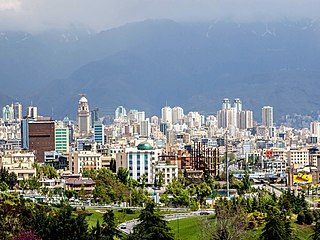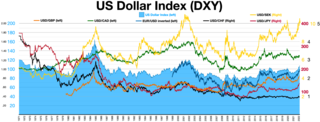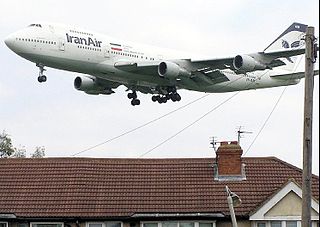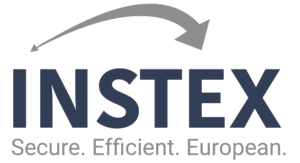
Money laundering is the process of illegally concealing the origin of money, obtained from illicit activities such as drug trafficking, corruption, embezzlement or gambling, by converting it into a legitimate source. It is a crime in many jurisdictions with varying definitions. It is usually a key operation of organized crime.

The Society for Worldwide Interbank Financial Telecommunication (Swift), legally S.W.I.F.T. SC, is a cooperative established in 1973 in Belgium and owned by the banks and other member firms that use its service. SWIFT provides the main messaging network through which international payments are initiated. It also sells software and services to financial institutions, mostly for use on its proprietary "SWIFTNet", and assigns ISO 9362 Business Identifier Codes (BICs), popularly known as "Swift codes".
Purchasing power parity (PPP) is a measure of the price of specific goods in different countries and is used to compare the absolute purchasing power of the countries' currencies. PPP is effectively the ratio of the price of a market basket at one location divided by the price of the basket of goods at a different location. The PPP inflation and exchange rate may differ from the market exchange rate because of tariffs, and other transaction costs.

Iran is a mixed economy with a large public sector. Some 60% of Iran's economy is centrally planned.. Iran's economy is characterized by its hydrocarbon, agricultural, and service sectors, in addition to manufacturing and financial services, with over 40 industries directly involved in the Tehran Stock Exchange. The stock exchange has been one of the best performing exchanges in the world over the past decade. With 10% of the world's proven oil reserves and 15% of its gas reserves, Iran is considered an "energy superpower".

Economic sanctions are commercial and financial penalties applied by states or institutions against states, groups, or individuals. Economic sanctions are a form of coercion that attempts to get an actor to change its behavior through disruption in economic exchange. Sanctions can be intended to compel or deterrence.

The foreign exchange market is a global decentralized or over-the-counter (OTC) market for the trading of currencies. This market determines foreign exchange rates for every currency. It includes all aspects of buying, selling and exchanging currencies at current or determined prices. In terms of trading volume, it is by far the largest market in the world, followed by the credit market.
The rial is the official currency of Iran. It is subdivided into 100 dinars, but due to the rial's low purchasing power the dinar is not practically used. While POS terminals are in use in Iran, the country does not participate in any of the major international card networks due to sanctions between it and the United States. Travelers are instead advised to load money onto a local prepaid card account.

Bank Saderat Iran(BSI) (Persian: بانک صادرات ایران, Bank Sadârat Iran, lit. "Export Bank of Iran") is an Iranian multinational banking and financial services company headquartered in Tehran, Iran. It is Iran's largest bank. It was founded in Tehran in 1952 by the prominent Mofarrah and Bolurfrushan (also spelled Bolourforoushan) families, represented in the first board by Mohammad Ali Mofarrah and Mohammad Bolurfrushan and commenced operation on 13 November 1952 with a board of three directors and 20 employees.

United States sanctions are financial and trade restrictions imposed against individuals, entities, and jurisdictions whose actions contradict U.S. foreign policy or national security goals. Financial sanctions are primarily administered by the U.S. Department of the Treasury's Office of Foreign Assets Control (OFAC), while export controls are primarily administered by the U.S. Department of Commerce's Bureau of Industry and Security (BIS).

The Central Bank of Iran (CBI), also known as Bank Markazi, officially the Central Bank of the Islamic Republic of Iran is the central bank of Iran.

The United States has since 1979 applied various economic, trade, scientific and military sanctions against Iran. United States economic sanctions are administered by the Office of Foreign Assets Control (OFAC), an agency of the United States Department of the Treasury. As of 2017, United States sanctions against Iran include an embargo on dealings with the country by the United States, and a ban on selling aircraft and repair parts to Iranian aviation companies.

Iran–Switzerland relations are foreign relations between the Islamic Republic of Iran and the Swiss Confederation.
There have been a number of international sanctions against Iran imposed by a number of countries, especially the United States, and international entities. Iran was the most sanctioned country in the world until it was surpassed by Russia, following Russia's invasion of neighboring Ukraine in February 2022.

In United States v. Banki, 685 F.3d 99 the Second Circuit Court of Appeals overturned the conviction of Mahmoud Reza Banki. Banki had been convicted of multiple crimes related to allegedly conspiring to violate United States sanctions against Iran by transferring large amounts of money — totaling some $3.4 million — from Iran to the United States.
U.S. v. Atilla is an Iranian sanctions case in New York. Mehmet Hakan Atilla an executive at Halkbank was accused of conspiring with Iranian-Turkish businessman Reza Zarrab, using the U.S. financial system to conduct transactions on behalf of Iran and other Iranian entities, which were barred by United States sanctions, and to delude U.S. financial institutions by concealing the true nature of these transactions.

The System for Transfer of Financial Messages, abbreviated SPFS, is a Russian equivalent of the SWIFT financial transfer system, developed by the Central Bank of Russia. The system has been in successful development since 2014, when the United States government threatened to disconnect the Russian Federation from the SWIFT system.

The Instrument in Support of Trade Exchanges (INSTEX) was a European special-purpose vehicle (SPV) established on 31 January 2019 and liquidated in March 2023. Its stated mission was to facilitate non-USD and non-SWIFT transactions with Iran to avoid breaking U.S. sanctions.

Dedollarisation refers to countries reducing reliance on the U.S. dollar as a reserve currency, medium of exchange or as a unit of account.

The Lebanese liquidity crisis is an ongoing financial crisis affecting Lebanon, that became fully apparent in August 2019, and was further exacerbated by the COVID-19 pandemic in Lebanon, the 2020 Beirut port explosion and the Russian invasion of Ukraine. The country experienced liquidity shortages in the years prior to 2019 but the full extent of the fragility of the economy were concealed through financial engineering by the governor of the central bank. Lebanon's crisis was worsened by United States sanctions targeting Syria's government and Iran-backed Hezbollah.
The SWIFT ban against some Russian banks is one of several international sanctions against the Russian regime imposed by the European Union and other western countries as a result of its invasion of Ukraine, aimed at weakening the country's economy to end the invasion by hindering Russian access to the SWIFT financial transaction processing system.













